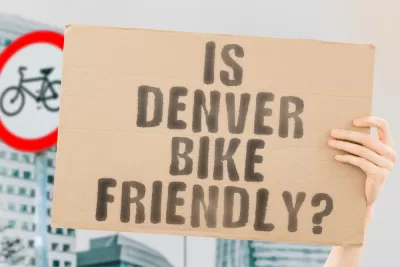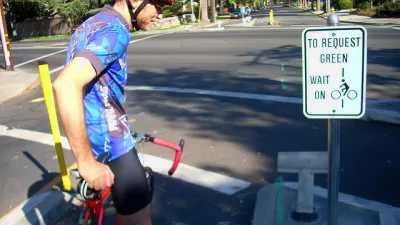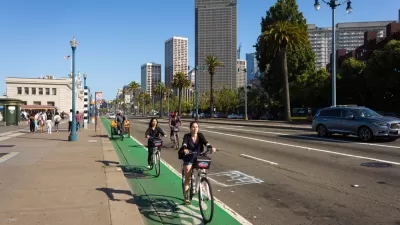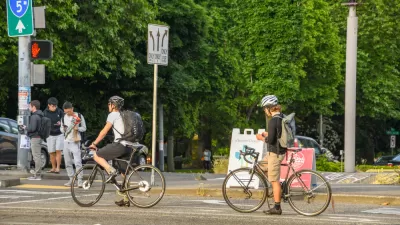Pending Gov. Polis's signature on a bill approved recently by the Colorado State Legislature, Colorado will become the latest state to allow people on bikes to yield at stop signs.

Another state is inching closer to allowing people on bikes to roll through stop signs and treat stop lights as stop signs: Colorado. The maneuver is known as the Idaho Stop, and it seems to gain more political and legal traction with every passing year.
"If enacted, House Bill 1028 would permit bicycles, e-scooters and other non-motorized vehicles to treat stop signs as yield signs and to treat red lights as stop signs when motorized vehicles are not around. This practice — colloquially called Idaho stops or rolling stops — lets bicyclists avoid making unnecessary stops if cars aren’t there," reports Hannah Metzger for Colorado Politics. Bill sponsor Sen. Faith Winter, D-Westminster, is quoted in the article touting the safety benefits of the Idaho Stop.
“It’s safer for bicyclists, it’s safer for drivers [….] Bikes are more able to stay within the flow of traffic, they’re more visible and it increases safety.” -Colorado Sen. Faith Winter, D-Westminster.
The Colorado Legislature approved HB 1028 on March 23—the bill still awaits final changes in the state's House of Representatives and the signature of Governor Jared Polis. We won't assume it's a done deal, however. The last state to approve an Idaho Stop bill, California, saw the bill die by governor's veto in October 2021.
A separate article by Nathaniel Minor, published by CPR News, discusses the racial equity benefits of legalizing the Idaho Stop. Bike advocates in the state say the new law will keep riders of color safer from cars and the police.
FULL STORY: Colorado legislature OKs ‘Idaho stops’ for bicyclists statewide

Study: Maui’s Plan to Convert Vacation Rentals to Long-Term Housing Could Cause Nearly $1 Billion Economic Loss
The plan would reduce visitor accommodation by 25,% resulting in 1,900 jobs lost.

North Texas Transit Leaders Tout Benefits of TOD for Growing Region
At a summit focused on transit-oriented development, policymakers discussed how North Texas’ expanded light rail system can serve as a tool for economic growth.

Why Should We Subsidize Public Transportation?
Many public transit agencies face financial stress due to rising costs, declining fare revenue, and declining subsidies. Transit advocates must provide a strong business case for increasing public transit funding.

How to Make US Trains Faster
Changes to boarding platforms and a switch to electric trains could improve U.S. passenger rail service without the added cost of high-speed rail.

Columbia’s Revitalized ‘Loop’ Is a Hub for Local Entrepreneurs
A focus on small businesses is helping a commercial corridor in Columbia, Missouri thrive.

Invasive Insect Threatens Minnesota’s Ash Forests
The Emerald Ash Borer is a rapidly spreading invasive pest threatening Minnesota’s ash trees, and homeowners are encouraged to plant diverse replacement species, avoid moving ash firewood, and monitor for signs of infestation.
Urban Design for Planners 1: Software Tools
This six-course series explores essential urban design concepts using open source software and equips planners with the tools they need to participate fully in the urban design process.
Planning for Universal Design
Learn the tools for implementing Universal Design in planning regulations.
City of Santa Clarita
Ascent Environmental
Institute for Housing and Urban Development Studies (IHS)
City of Grandview
Harvard GSD Executive Education
Toledo-Lucas County Plan Commissions
Salt Lake City
NYU Wagner Graduate School of Public Service





























